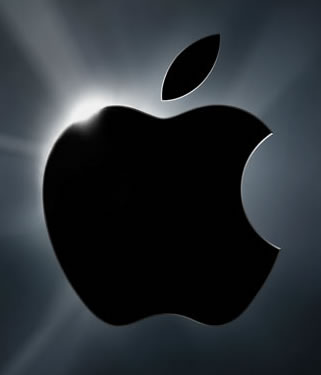This
Laptop magazine article gives an amusing look at some of Apple's largest mobile competitors. The interview is with Helio, Motorola, Nokia and Samsung - pretty much the biggest players of the handset business.
Some of the thoughts were a bit backwards. The Helio rep doesn't

believe that the touch screen will be a mainstay in the near future. The touch screen essentially allows the user to mimic "real" web browsing on a mobile device. This is probably the best feature of the iPhone, considering the terrible browsing experience on almost all other smartphones. As a Blackberry user, I can say that a 3.5" brilliant screen with actual pictures and formatting is a step up from a text-based display with a less than ideal user interface.
When asked about convergence, Helio, Motorola and Nokia all answered that consumers are looking all-in-one devices, and then give a free plug about their own devices, such as the N95 or the Ocean. Samsung, however, seems to have little to say on the subject, grabbing hold of GPS. All in all, convergence in the style of the iPhone is here to stay, according to these big players.
Nokia seems to place functionality over slimness of the device - which makes sense. Phones can only get so thin before they become frail and unusable.
Helio keeps finding a way to talk about the Ocean - when asked about a positive feature of the iPhone, the rep mentions the difference in feel between the two devices. Nokia does so as well, with the N95. Those two are probably the only two phones on the market that serve the same market as the iPhone.
Saving the best for last, Laptop Mag asks the four reps the dislikes that they have about the iPhone. Helio jumps on the lack of tactile keypad. To be honest, the software based keypad on the iPhone takes some getting used to, but actually provides a larger surface area and far more room for error than any tactile keypad could. With slimness, durability, and screen size all being taken into account, the lack of keypad is going to become the industry standard. As long as the software solutions are smart enough to compensate for potential mistakes, keypads will become a thing of the past. Nokia makes some fair points - the lack of 3G and and GPS. The lack of 3G is a big deal, but will soon be remedied in Apple's next generation (hopefully). Samsung also jumps on the battery life and lack of expandable memory. Fair points, however no other phone can compare with the amount of memory on the iPhone - it's still about 7 gigs ahead of the competition, with or without expandable ports.
Then, of course, Motorola tactfully declines to speak negatively about the iPhone; how classy.
 on iPhone release, one can only speculate as to what improvements will be made.
on iPhone release, one can only speculate as to what improvements will be made.








